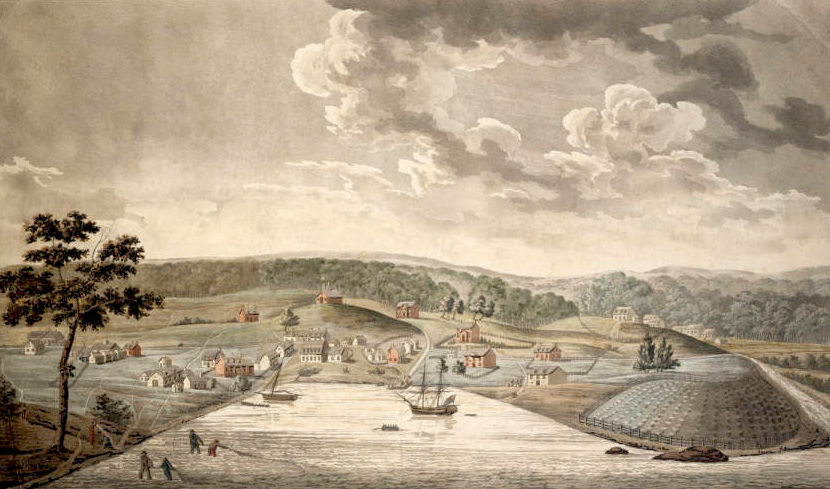|
Victimology
Victimology is the study of victimization, including the psychological effects on victims, the relationship between victims and offenders, the interactions between victims and the criminal justice system—that is, the police and courts, and corrections officials—and the connections between victims and other social groups and institutions, such as the media, businesses, and social movements. Victim of a crime In criminology and criminal law, a victim of a crime is an identifiable person who has been harmed individually and directly by the perpetrator, rather than by society as a whole. However, this may not always be the case, as with victims of white collar crime, white-collar crime, who may not be clearly identifiable or directly linked to crime against a particular individual. Victims of white-collar crime are often denied their status as victims by the social construction of the concept. The Supreme Court of the United States first recognized the rights of crime victi ... [...More Info...] [...Related Items...] OR: [Wikipedia] [Google] [Baidu] |
Victimization
Victimisation ( or victimization) is the state or process of being victimised or becoming a victim. The field that studies the process, rates, incidence, effects, and prevalence of victimisation is called victimology. Peer victimisation Peer victimisation is the experience among children of being a target of the aggressive behaviour of other children, who are not siblings and not necessarily age-mates. Peer victimisation is correlated with an increased risk of depression and decreased well-being in adulthood. Secondary victimisation Secondary victimization (also known as post crime victimization"post-crime victimization or secondary victimization". Comprehensive Criminal Justice Terminology. Prentice Hall. Archived from the original on 10 March 2013. Retrieved 9 January 2008. or double victimization) refers to further victim-blaming from criminal justice authorities following a report of an original victimization. Revictimisation The term revictimisation refers to a pattern ... [...More Info...] [...Related Items...] OR: [Wikipedia] [Google] [Baidu] |
Victim Impact Statement
A victim impact statement is a written or oral statement made as part of the judicial legal process, which allows crime victims the opportunity to speak during the sentencing of the convicted person or at subsequent parole hearings. Overview One purpose of the statement is to allow the person or persons most directly affected by the crime to address the court during the decision making process. It is seen to personalize the crime and elevate the status of the victim. From the victim's point of view it is regarded as valuable in aiding their emotional recovery from their ordeal. It has also been suggested they may confront an offender with the results of their crime and thus aid rehabilitation. Another purpose of the statement is to inform a court of the harm suffered by the victim if the court is required to, or has the option of, having regard to the harm suffered by the victim in deciding the sentence. In cases of crimes resulting in death, the right to speak is extended to ... [...More Info...] [...Related Items...] OR: [Wikipedia] [Google] [Baidu] |
Restorative Justice
Restorative justice is a community-based approach to justice that aims to repair the harm done to victims, offenders and communities. In doing so, restorative justice practitioners work to ensure that offenders take responsibility for their actions, to understand the harm they have caused, to give them an opportunity to redeem themselves, and to discourage them from causing further harm. For victims, the goal is to give them an active role in the process, and to reduce feelings of anxiety and powerlessness. Restorative justice programmes are complementary to the criminal justice system including retributive justice. It has been argued from the perspectives of some positions on what punishment is that some cases of restorative justice constitute an alternative punishment to those atoning. Though academic assessment of restorative justice is positive, more recent studies have shown that academic performance falters in school districts where restorative justice is practiced. Pr ... [...More Info...] [...Related Items...] OR: [Wikipedia] [Google] [Baidu] |
Nils Christie
Nils Christie (24 February 1928 – 27 May 2015) was a Norwegian sociologist and criminologist. He was a professor of criminology at the Faculty of Law, University of Oslo. Considered a leading figure of his field, Christie is one of two Norwegian social scientists covered in the book ''50 Key Thinkers in Criminology'' (Routledge, 2009), alongside sociologist Thomas Mathiesen. Early life and education Christie was born in Oslo on 24 February 1928, as son of store manager Ragnvald Christie (1895-1957) and Ruth Hellum (1900-1987). He passed '' examen artium'' at Berg Upper Secondary School in 1946. He showed an early interest in societal matters and worked for a time as a journalist in the late 1940s. He graduated as M.A. in 1953 (major subject: sociology, minor subject: psychology and criminology) from the University of Oslo. His 1959 dr.philos. thesis, ''Unge norske lovovertredere'' (Young Norwegian Offenders), compared all male lawbreakers born in 1933 in Norway to other ... [...More Info...] [...Related Items...] OR: [Wikipedia] [Google] [Baidu] |
Deterrence (psychology)
Deterrence in relation to criminal offending is the idea or penology, theory that the threat of punishment will deter people from committing crime and reduce the probability and/or level of offending in society. It is one of five objectives that punishment is thought to achieve; the other four objectives are denunciation (penology), denunciation, Incapacitation (penology), incapacitation (for the protection of society), retributive justice, retribution and Rehabilitation (penology), rehabilitation. Criminal deterrence theory has two possible applications: the first is that punishments imposed on individual offenders will deter or prevent that particular offender from committing further crimes; the second is that public knowledge that certain offences will be punished has a generalised deterrent effect which prevents others from committing crimes. Two different aspects of punishment may have an impact on deterrence, the first being the ''certainty of punishment'', by increasing t ... [...More Info...] [...Related Items...] OR: [Wikipedia] [Google] [Baidu] |
Criminology
Criminology (from Latin , 'accusation', and Ancient Greek , ''-logia'', from λόγος ''logos'', 'word, reason') is the interdisciplinary study of crime and deviant behaviour. Criminology is a multidisciplinary field in both the behavioural and social sciences, which draws primarily upon the research of sociologists, political scientists, economists, legal sociologists, psychologists, philosophers, psychiatrists, social workers, biologists, social anthropologists, scholars of law and jurisprudence, as well as the processes that define administration of justice and the criminal justice system. The interests of criminologists include the study of the nature of crime and criminals, origins of criminal law, etiology of crime, social reaction to crime, and the functioning of law enforcement agencies and the penal institutions. It can be broadly said that criminology directs its inquiries along three lines: first, it investigates the nature of criminal law and its ... [...More Info...] [...Related Items...] OR: [Wikipedia] [Google] [Baidu] |
Society
A society () is a group of individuals involved in persistent social interaction or a large social group sharing the same spatial or social territory, typically subject to the same political authority and dominant cultural expectations. Societies are characterized by patterns of relationships ( social relations) between individuals who share a distinctive culture and institutions; a given society may be described as the sum total of such relationships among its constituent members. Human social structures are complex and highly cooperative, featuring the specialization of labor via social roles. Societies construct roles and other patterns of behavior by deeming certain actions or concepts acceptable or unacceptable—these expectations around behavior within a given society are known as societal norms. So far as it is collaborative, a society can enable its members to benefit in ways that would otherwise be difficult on an individual basis. Societies vary based o ... [...More Info...] [...Related Items...] OR: [Wikipedia] [Google] [Baidu] |
Psychological Pain
Psychological pain, mental pain, or emotional pain is an unpleasant feeling (a suffering) of a psychological, mental origin. A pioneer in the field of suicidology, Edwin S. Shneidman, described it as "how much you hurt as a human being. It is mental suffering; mental torment." There are numerous ways psychological pain is referred to, using a different word usually reflects an emphasis on a particular aspect of mind life. Technical terms include algopsychalia and psychalgia, but it may also be called mental pain, emotional pain, psychic pain, social pain, spiritual or soul pain, or suffering. While these clearly are not equivalent terms, one systematic comparison of theories and models of psychological pain, psychic pain, emotional pain, and suffering concluded that each describe the same profoundly unpleasant feeling. Psychological pain is widely believed to be an inescapable aspect of human existence. Other descriptions of psychological pain are "a wide range of subjective ex ... [...More Info...] [...Related Items...] OR: [Wikipedia] [Google] [Baidu] |
United States Forest Service
The United States Forest Service (USFS) is an agency within the United States Department of Agriculture, U.S. Department of Agriculture. It administers the nation's 154 United States National Forest, national forests and 20 United States National Grassland, national grasslands covering of land. The major divisions of the agency are the Chief's Office, National Forest System, State and Private Forestry, Business Operations, as well as Research and Development. The agency manages about 25% of federal lands and is the sole major national land management agency not part of the United States Department of the Interior, U.S. Department of the Interior (which manages the National Park Service, the U.S. Fish and Wildlife Service and the Bureau of Land Management). History In 1876, Congress formed the office of Special Agent in the Department of Agriculture to assess the quality and conditions of forests in the United States. Franklin B. Hough was appointed the head of the office. ... [...More Info...] [...Related Items...] OR: [Wikipedia] [Google] [Baidu] |
Baltimore, Maryland
Baltimore is the List of municipalities in Maryland, most populous city in the U.S. state of Maryland. With a population of 585,708 at the 2020 United States census, 2020 census and estimated at 568,271 in 2024, it is the List of United States cities by population, 30th-most populous U.S. city. The Baltimore metropolitan area is the Metropolitan statistical areas, 20th-largest metropolitan area in the country at 2.84 million residents. The city is also part of the Washington–Baltimore combined statistical area, which had a population of 9.97 million in 2020. Baltimore was designated as an Independent city (United States), independent city by the Constitution of Maryland in 1851. Though not located under the jurisdiction of any county in the state, it forms part of the central Maryland region together with Baltimore County, Maryland, the surrounding county that shares its name. The land that is present-day Baltimore was used as hunting ground by Paleo-Indians. In the early 160 ... [...More Info...] [...Related Items...] OR: [Wikipedia] [Google] [Baidu] |
Portland, Oregon
Portland ( ) is the List of cities in Oregon, most populous city in the U.S. state of Oregon, located in the Pacific Northwest region. Situated close to northwest Oregon at the confluence of the Willamette River, Willamette and Columbia River, Columbia rivers, it is the county seat of Multnomah County, Oregon, Multnomah County, Oregon's most populous county. Portland's population was 652,503, making it the List of United States cities by population, 28th most populous city in the United States, the sixth most populous on the West Coast of the United States, West Coast, and the third most populous in the Pacific Northwest after Seattle and Vancouver. Approximately 2.5 million people live in the Portland metropolitan area, Oregon, Portland metropolitan area, making it the List of metropolitan statistical areas, 26th most populous in the United States. Almost half of Oregon's population resides within the Portland metro area. Named after Portland, Maine, which is itself named aft ... [...More Info...] [...Related Items...] OR: [Wikipedia] [Google] [Baidu] |



